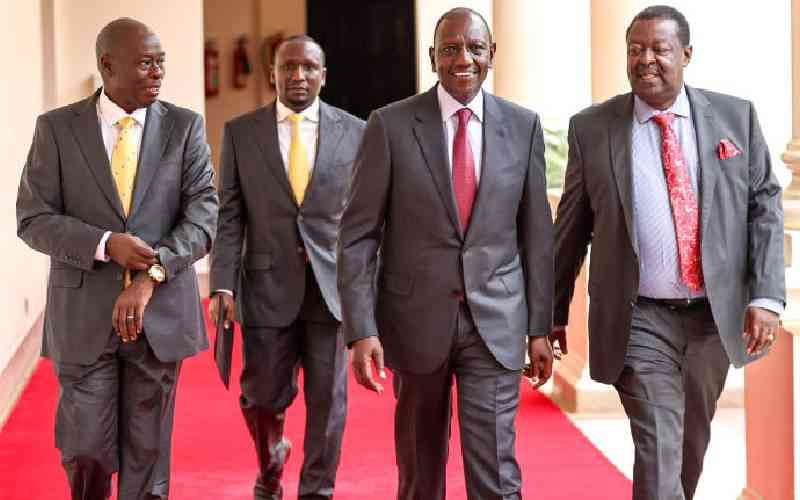×
The Standard e-Paper
Fearless, Trusted News

Divided loyalties, phenomenon of "super-officers", overlapping reporting structures, personality clashes and squabbles over accounting officer roles have conflated to jam operations of the nascent government of President William Ruto.
In just a week, Ruto fired a Principal Secretary and moved several in his first reshuffle in just under five months of active work. Within the same week, a Principal Secretary quit on personal grounds and the President issued a terse, written warning against corruption among top officers.